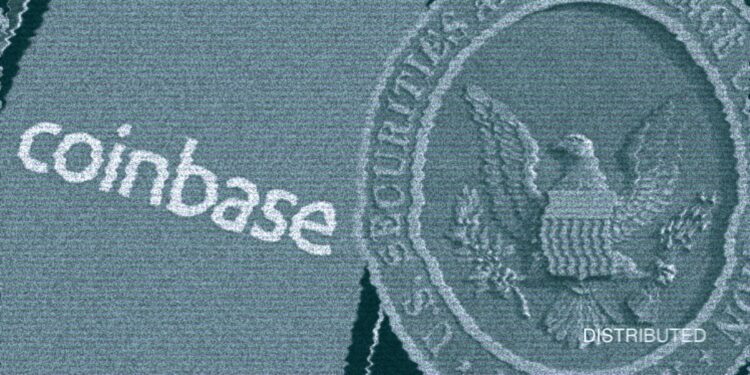Coinbase, a leading cryptocurrency exchange, seems to be on the brink of a significant triumph in its ongoing legal face-off with the U.S. Securities and Exchange Commission (SEC). This sentiment was echoed by legal experts after a critical court hearing this week.
Bloomberg’s Senior Litigation Analyst, Elliot Z. Stein, offered insights via a tweet on Friday. After attending Coinbase’s presentation in court on Wednesday, Stein assessed the exchange’s chances of winning its motion to dismiss the SEC’s accusations at a robust 70%. He notably stated, “We think Coinbase is likely to win this motion,” in a research note shared on Twitter.
See Related: SEC’s Last-Minute Moves Could Pave The Way For Bitcoin ETFs
SEC’s Lawsuit
In June, Coinbase asserted in a legal motion that the tokens implicated in the SEC’s lawsuit do not fit the conventional definition of an investment contract. Consequently, the company argued, these tokens shouldn’t be classified as securities, and Coinbase itself shouldn’t be labeled an unregistered securities exchange.
Judge Katherine Polk Failla, presiding over the case, challenged the SEC to define “investment contract” in a way that wouldn’t inadvertently include non-threatening collectibles like Beanie Babies. Conversely, Stein found Coinbase’s definition, which requires crypto investors to buy into a “business” rather than just an ecosystem, more convincing. This definition could potentially exempt both the cryptocurrency sales and staking services on Coinbase’s platform from SEC regulation.
The Howey Test, established in the 1940s, serves as the benchmark for identifying investment contracts. It involves four criteria: an investment of money, in a common enterprise, with the expectation of profits, primarily from the efforts of others. University of Kentucky law professor Brian L. Frye underscored that while the SEC has the authority to regulate collectibles under Howey, it has opted not to do so.
In June, Coinbase filed a detailed motion to dismiss the SEC’s case, contending that the SEC lacks statutory authority over the exchange. Paul Grewal, Coinbase’s Chief Legal Officer, emphasized the untenability of the SEC’s position regarding its powers.
Experts have mixed views on the outcome. While some, like Frye, lean towards the district court favoring Coinbase, others, such as Joe Carlasare of Amundsen Davis law firm, are more cautious, estimating a less than 30% chance of Coinbase achieving a complete dismissal of all charges.



